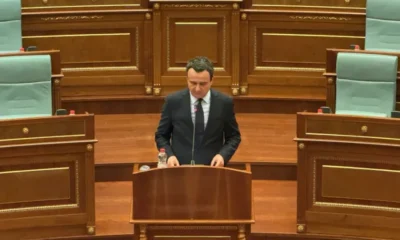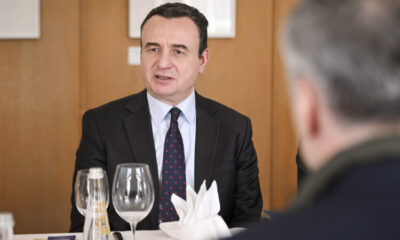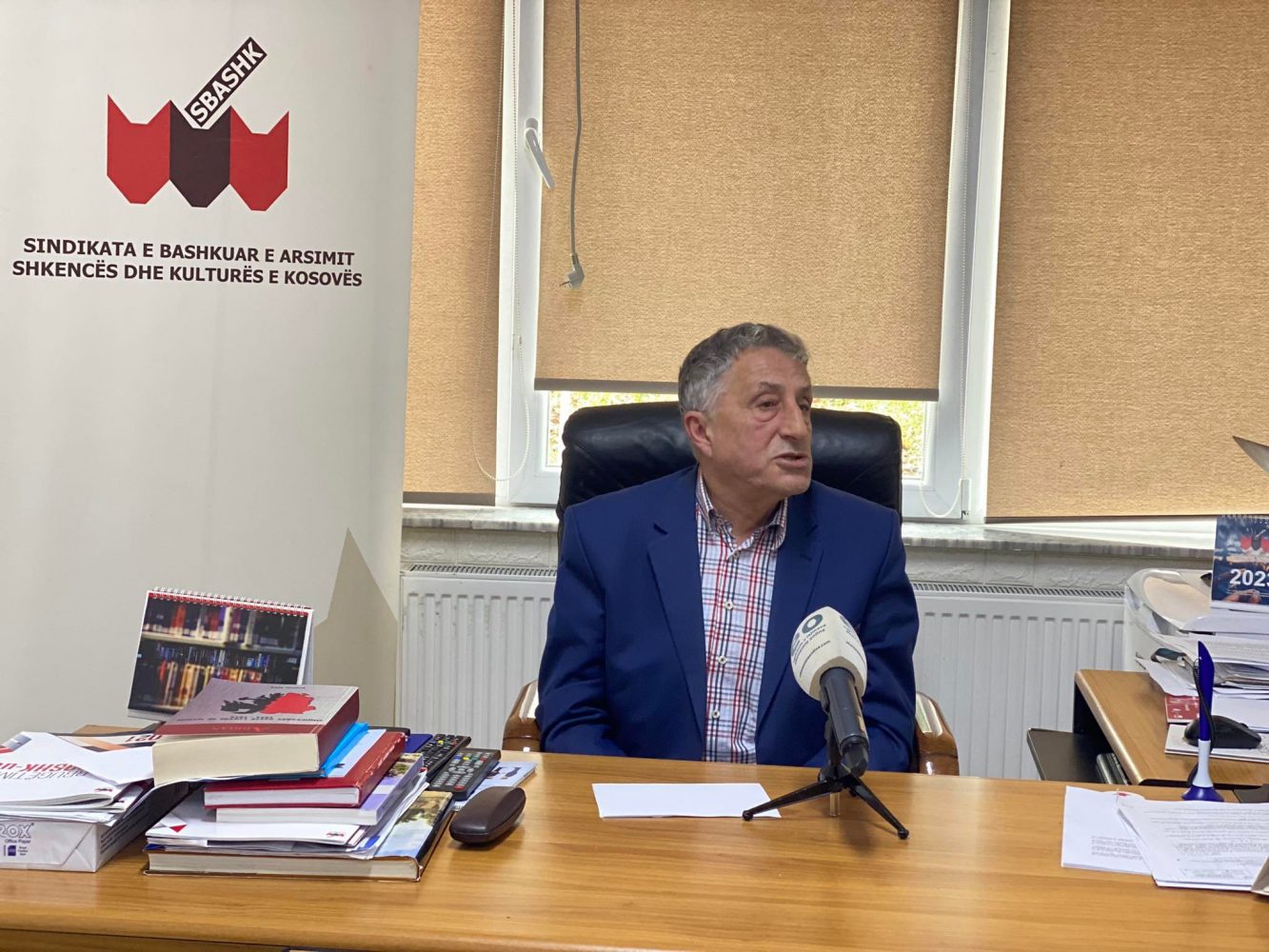
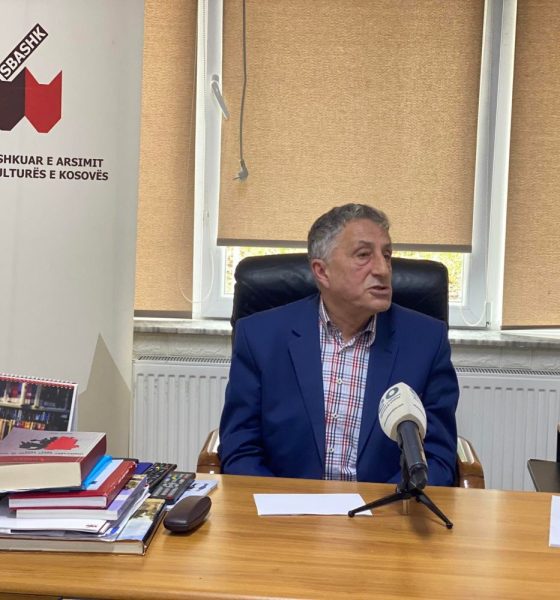
Lajmet
Jasharaj për koeficientin: S’po di çka t’i them anëtarësisë, është krijuar huti
Ai kërkoi nga Kurti që të mos ngjallë pakënaqësi.
Published
3 years agoon
By
Betim GashiKryetari i Sindikatës së Bashkuar të Arsimit, Shkencës dhe Kulturës (SBAShK), Rrahman Jasharaj, tha se vazhdimisht po pyetet nga anëtarësia që cili do të jetë koeficienti në Ligjin e Pagave.
Jasharaj tha se janë të shqetësuar që po mbahet fshehtë koeficienti, duke shtuar se në një takim që kanë pasur me kryeministrin u është përmendur vlera prej 120 eurosh, por që nuk dihet ende.
Vlera e koeficientit uron Jasharaj që të jetë e pranueshme për të gjithë dhe të ketë rritje të pagave në të gjithë sektorët.
“Kur është pyetja te koeficienti, po e them jo vetëm ne si SBAShK, po edhe sindikatat tjera janë të shqetësuara sepse duke mos e ditur koeficientin ne edhe nuk mund t’i tregojmë anëtarësisë se sa do të jetë paga e tyre, pavarësisht faktit se numrin e koeficienteve e dimë. Në një takim që e ka pasur kryetari i bashkimit të sindikatave të Kosovës, zotëri Atdhe Hykolli me kryeministrin na është thënë se ai ka premtuar se në muajin janar do të publikohet zyrtarisht koeficienti, e opinioni e di edhe mediat e dinë, janë përfolur disa koeficiente, dikush ka thënë 120 euro, dikush pak më shumë se kjo, dikush pak më pak dhe kjo ka krijuar edhe një huti dhe të iu themi të vërtetën për momentin ne edhe nuk kemi përgjigje kur anëtarësia na bëjnë pyetjen sa do të jetë paga e tyre, por jemi të sigurt se pozicioni i sektorit të arsimit është në nivel të duhur mes koeficienteve ashtu edhe siç e kemi pasur versionin tonë”.
“…urojmë që vlera e koeficientit të jetë e pranueshme, e dëshirueshme dhe të arrihet ajo që e presin të gjithë në sektorin publik, të ne që nga çerdhet në universitet po edhe të punësuarit e tjerë që të kemi ngritje page ngase ngritje paga në Kosovë nuk ka pasur me vite të tëra, ndërsa ngritje të çmimeve ka pasur edhe ka edhe tani, dhe kjo paga aktuale e secili është zhvlerësuar në masë të duhur, uroj që të ndodhë kështu, uroj që në shkurt ta kemi të implementuar Ligjin e pagave me një koeficient i cili garanton ngritje të pagave në tërë sektorin e arsimit, por edhe në sektorët tjerë”.
Ligji i Pagave ka gjasa të përfundojë në Kushtetuese pas kërkesë së IKD-së drejtuar Avokatit të Popullit, për këtë Jasharaj shpreson që mos të gjende “defekte” dhe të fillojë së zbatuari në shkurt.
“Uroj që të mos ketë defekte në ligj uroj që Kushtetuesja të mos i thotë jo ligjit dhe shkurti të na gjejë me ligjin e pagave por me një ligj atë që e kanë pritë të iu realizohet anëtarësisë sonë dhe të tjerëve që të kanë një ngritje të pagave po them të cilën nuk e kanë pasur tani e disa vite me radhë. Besoj se Qeveria Kurti nuk do të lejojë të kemi situata të pakënaqësisë në të ardhmen, shkurti do të jetë muaji që do t’i gëzojë edhe punëtorët e arsimit, neve na gëzon fakti së paku në bazë të numrit të koeficienteve se kemi bërë një lëvizje goxha të mirë për çerdhet që kanë qenë shumë keq, për punëtorët tekniko-ndihmësit”, deklaroi ai.
Kur foli për ndaljen e shtesave nga janari, ai tha se ndonëse është premtuar nga Qeveria një pako tjetër, sigurisht ekzekutivi po pret që të hyjë në fuqi Ligji i pagave e mos të ketë ndihma të tjera.
“Po të iu themi të vërtetën ne fare nuk kemi pasur marrëveshje për 50 euro, ngase ato janë konsideruar si pako për shkak të situatës, kërkesa jonë ka qenë ajo që ishte dhe nuk është realizuar, por ka pasur deklarata se mbase një pako e re mbështetëse do të bëhet nga janari për këtë vit, një gjë e tillë ende s’ka ndodhë, së paku ne nuk kemi informata dhe jemi në pritje mbase Qeveria do të dalë me ndonjë vendim, apo ndoshta Qeveria po pret që në shkurt të fillojë implementimi i Ligjit të pagave dhe me këtë e konsideron se nuk ka nevojë për ndonjë mbështetje të veçantë sepse edhe ne edhe të tjerët, presim që ligji i pagave do të bëj ndryshim të pagave, gjegjësisht do të bëjë një ngritje të pagave edhe në sektorin e arsimit”, shtoi ai.
Vendi
Takimet me LDK e PDK, Kurti: Nuk priten zgjedhje të reja
Published
7 hours agoon
February 23, 2026By
UBTNews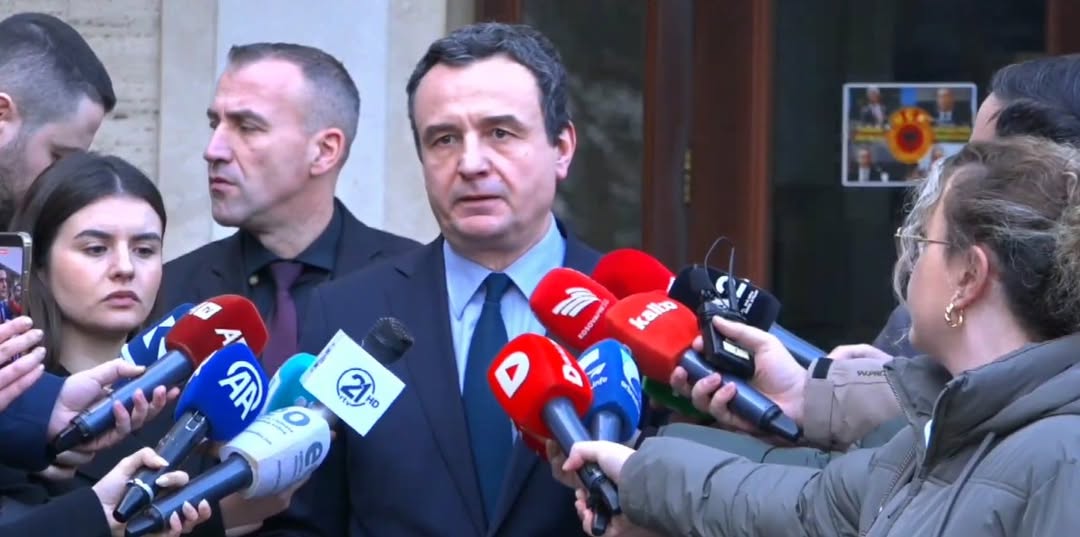
Kryeministri i Kosovës, Albin Kurti, pas takimit me kryetarin e Lidhjes Demokratike të Kosovës, Lumir Abdixhiku, ka thënë se ka konstatuar gatishmëri për zgjedhjen e presidentit, por se bashkëpunimi mes LVV dhe LDK nuk garanton automatikisht përfundimin e këtij procesi.
Sipas Kurtit, të dy partitë politike disponojnë 81 vota, dhe nga ky numër mund të bjerë vetëm një deputet, por jo më pak se 80. Ai ka vlerësuar takimet me Abdixhikun dhe me Bedri Hamza nga PDK-ja si konstruktive dhe me përmbajtje pozitive.
“Zellë për zgjedhje të reja nuk shoh as te LDK, as te PDK, dhe kjo më jep shpresë që nuk do të ketë zgjedhje të reja,” tha kryeministri.
Ndërkaq, kryetari i LDK-së, Lumir Abdixhiku, e ka konsideruar takimin mbi dyorësh me Kurtin si konstruktiv dhe me përmbajtje të qartë. Ai ka shtuar se për zgjedhjen e presidentit nevojitet një marrëveshje klasike mes partive ose konsensus mbi një kandidat të vetëm, dhe se LDK nuk ka plan të hyjë në qeveri./Kosovapress/
Vendi
Kurti takon Përfaqësuesin e UNDP-së, rikonfirmohet bashkëpunimi strategjik
Published
10 hours agoon
February 23, 2026By
UBTNews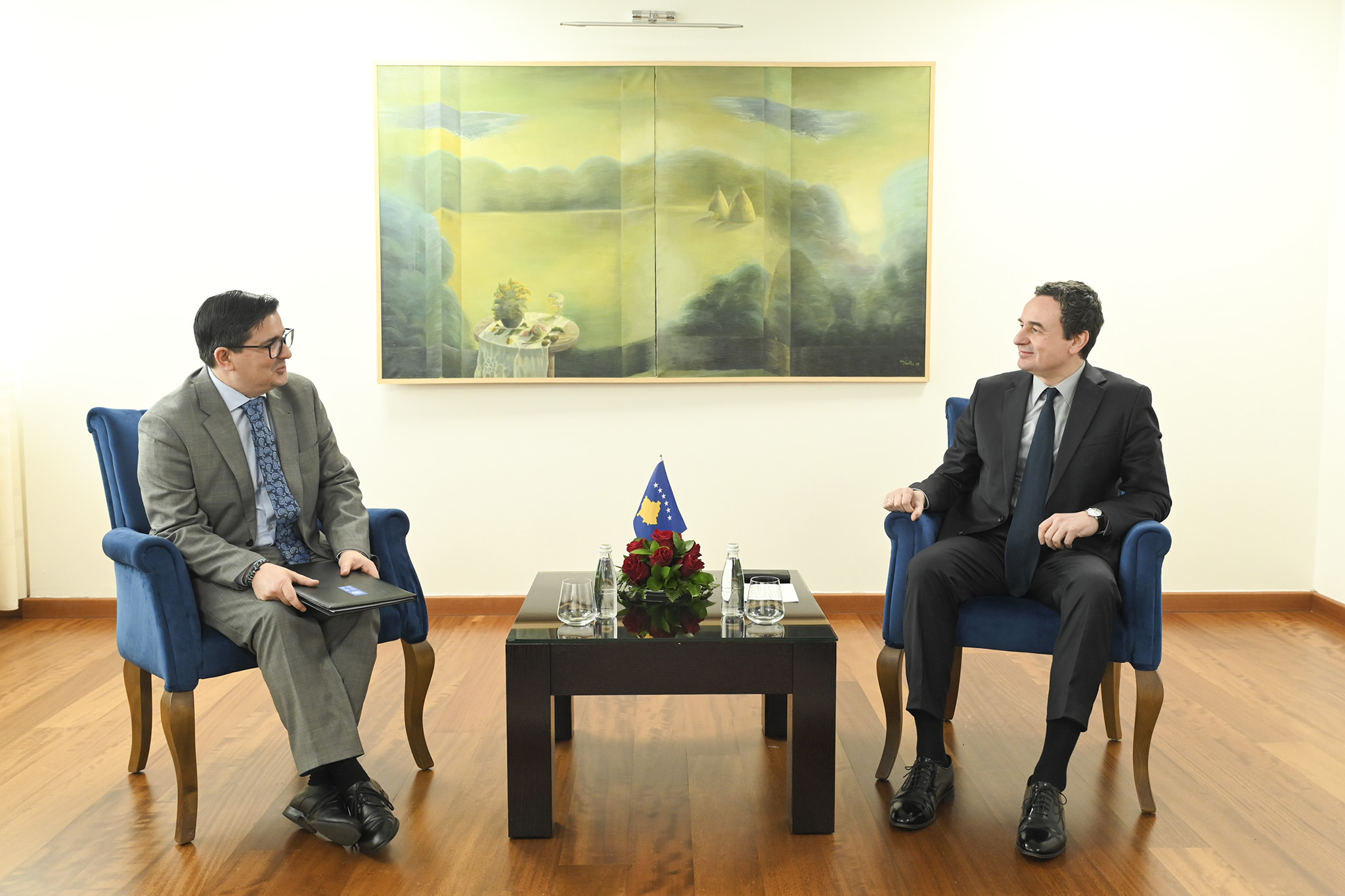
Kryeministri i Kosovës, Albin Kurti, priti sot në takim Përfaqësuesin e Përhershëm të Programit të Kombeve të Bashkuara për Zhvillim (UNDP), Nuno Queirós.
Perfaqwsuesi Queirós e uroi Kryeministrin Kurti për mandatin e tij të ri dhe kabinetin qeveritar.
Ndërkaq, Kryeministri Kurti falënderoi Queirós për bashkëpunimin e vazhdueshëm ndërmjet Qeverisë së Kosovës dhe UNDP-së, duke theksuar se UNDP mbetet një partner strategjik në forcimin e institucioneve dhe në zbatimin e reformave me rezultate konkrete për qytetarët.
Në takim u rikonfirmua gatishmëria për bashkëpunim në fusha me prioriet si lufta kundër korrupsionit dhe sundimi i ligjit, mbrojtja e trashëgimisë kulturore, dokumentimi dhe adresimi i krimeve të luftës, mbrojtja e mjedisit dhe tranzicioni i gjelbër, si dhe reforma në arsim dhe ngritja e kapaciteteve institucionale.
Kryeministri Kurti theksoi rëndësinë e reformës në prokurimin publik, me fokus në rritjen e transparencës, digjitalizimin e proceseve dhe forcimin e mekanizmave mbrojtës kundër keqpërdorimit të fondeve publike.
Ai bëri me dije se qeveria do të vazhdojë me miratimin e strategjisë anti-korrupsion dhe ligjit për Byronë Shtetërore për Konfiskimin e Pasurisë së Pajustifikueshme.
Të dy palët theksuan se bashkëpunimi i deritanishëm ka dhënë rezultate të prekshme dhe shprehën përkushtimin për ta thelluar më tej partneritetin në funksion të zhvillimit të qëndrueshëm dhe forcimit të institucioneve të Republikës së Kosovës.
Vendi
Dialogu Kosovë-Serbi nën udhëheqjen e Konjufcës
Published
10 hours agoon
February 23, 2026By
UBTNews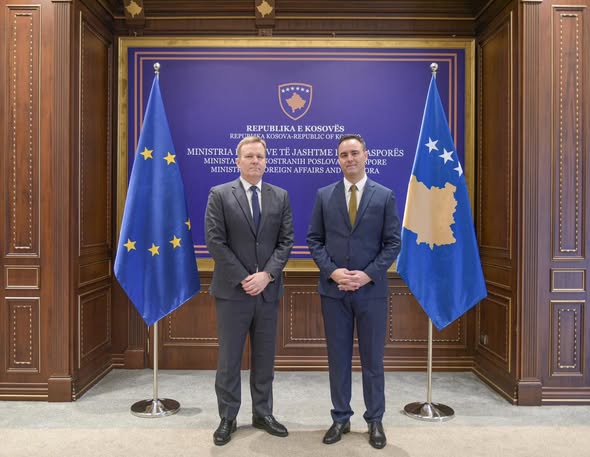
Zëvendëskryeministri i Parë dhe Ministri i Punëve të Jashtme dhe Diasporës, Glauk Konjufca, priti sot Përfaqësuesin Special të Bashkimit Evropian për dialogun Kosovë-Serbi, Peter Sørensen, ku diskutuan mbi zhvillimet e fundit në dialog dhe mënyrën e avancimit të tij.
Gjatë takimit, Konjufca informoi Sørensen se nga tani procesi i dialogut do të udhëhiqet nga ai personalisht, përmes Ministrisë së Punëve të Jashtme dhe Diasporës. U shkëmbyen pikëpamje mbi momentumin aktual të dialogut dhe parimet që mund të sigurojnë një proces më efektiv dhe të qëndrueshëm.
Konjufca theksoi se Kosova mbetet e përkushtuar që dialogun ta shohë si mundësi për përmirësimin e marrëdhënieve fqinjësore me Serbinë, si dy shtete sovrane në rrugën e tyre drejt integrimit evropian.
Konjufca dhe Sørensen u pajtuan mbi rëndësinë e bashkëpunimit të ngushtë midis Kosovës dhe Bashkimit Evropian për një dialog konstruktiv dhe të rezultateve konkrete.
Lajmet
Haxhiu dhe ambasadori britanik diskutojnë zgjedhjen e Presidentit
Published
10 hours agoon
February 23, 2026By
UBTNews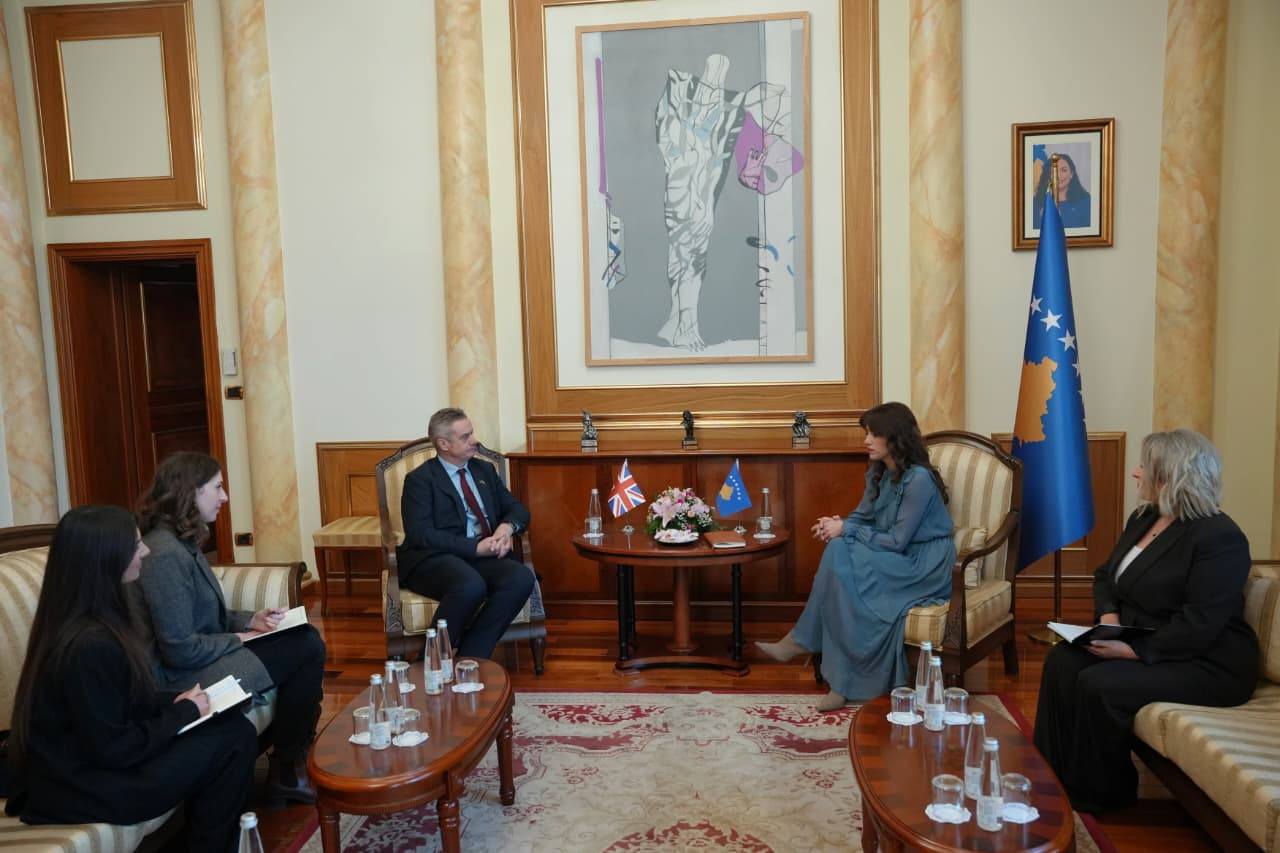
Kryetarja e Kuvendit të Republikës së Kosovës, Albulena Haxhiu, priti sot Ambasadorin e Mbretërisë së Bashkuar në Kosovë, Jonathan Hargreaves, ku biseduan mbi marrëdhëniet e mes dy vendeve, zhvillimet aktuale institucionale dhe proceset lidhur me Presidencën.
Gjatë takimit, Kryetarja Haxhiu shprehu mirënjohjen për mbështetjen e vazhdueshme të Mbretërisë së Bashkuar ndaj Kosovës, veçanërisht në faza kyçe të zhvillimit të saj, duke theksuar progresin e arritur në konstituimin e institucioneve dhe në kalimin e fazave të rëndësishme.
Ambasadori Hargreaves e përgëzoi Kryetaren Haxhiu për zgjedhjen në detyrë dhe vlerësoi përparimin e shpejtë të Kuvendit në miratimin e marrëveshjeve ndërkombëtare dhe buxhetit për vitin 2026. Ai gjithashtu diskutoi me Kryetaren për zgjedhjet e ardhshme presidenciale dhe shprehu pritshmëri për bashkëpunim të ngushtë mes parlamenteve të Kosovës dhe Mbretërisë së Bashkuar.
Në këtë takim u ritheksua nga të dy palët gatishmëria për thellimin e bashkëpunimit dhe forcimin e partneritetit ndërmjet dy vendeve, duke përfshirë edhe intensifikimin e shkëmbimeve parlamentare që lidhen me institucionet e larta të shtetit.

UEFA pezullon përkohësisht Prestiannin pas incidentit me Vinicius

Takimet me LDK e PDK, Kurti: Nuk priten zgjedhje të reja

Zvicra këmbëngul për një marrëveshje tregtare të detyrueshme ligjërisht me SHBA-në

Dalin në shitje biletat për Kosovë – Sllovaki

Kurti takon Përfaqësuesin e UNDP-së, rikonfirmohet bashkëpunimi strategjik

Dialogu Kosovë-Serbi nën udhëheqjen e Konjufcës

Haxhiu dhe ambasadori britanik diskutojnë zgjedhjen e Presidentit

DW:Rrezik për zgjedhje të reja në Kosovë?

Shpërthen dhuna pasi forcat meksikane të sigurisë vrasin bosin e kartelit të drogës “El Mencho”
Të kërkuara
-
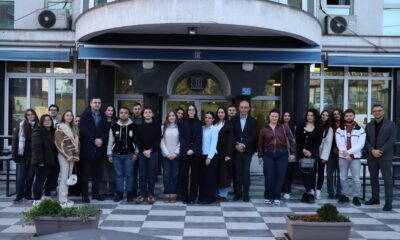
 Aktualitet3 months ago
Aktualitet3 months agoMe shumicë votash, Vesa Shatri zgjidhet Kryetare e re e Këshillit Studentor të UBT-së
-
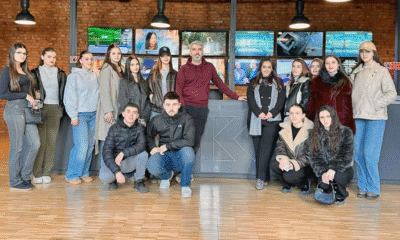
 Lajmet nga UBT3 months ago
Lajmet nga UBT3 months agoNjohja me proceset profesionale televizive, vizita e studentëve të Media dhe Komunikim në Klan Kosova
-
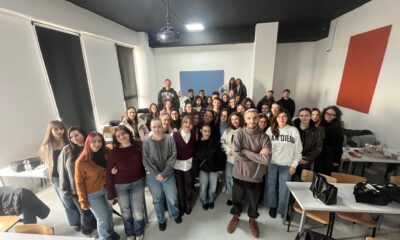
 Vendi2 months ago
Vendi2 months agoDizajneri grafik Berin Hasi ligjëron për studentët e Dizajnit të Integruar në UBT
-
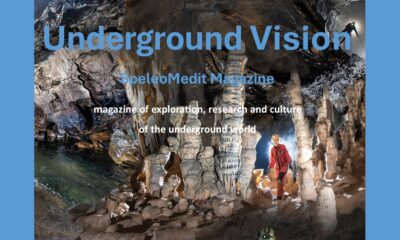
 Rajoni2 months ago
Rajoni2 months agoProfesori i UBT-së, Hazir S. Çadraku dhe bashkëpunëtorët publikojnë artikullin “Historia e Mbrojtjes së Shpellës në Kosovë” në SpeleoMedit Magazine

